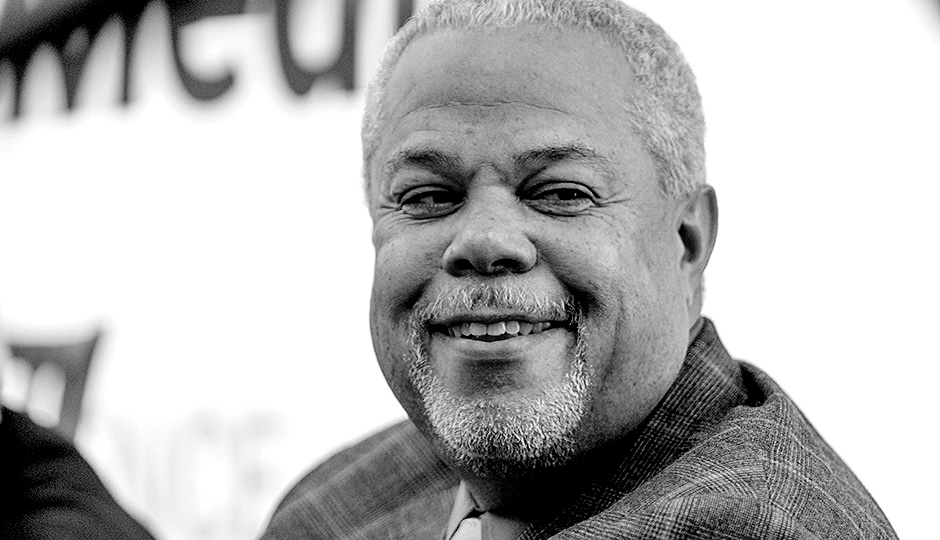The Brief: Tony Williams’ Huge Gambit
1. Tony Williams Bets Big on Community Distrust of Police
The gist: State Sen. and mayoral candidate Anthony Williams did something this week that, on its face, defies logic. He attacked one of the most popular public officials in Philadelphia: Police Commissioner Charles Ramsey. At a debate airing on 6ABC, Williams said he would fire Ramsey because he has administered the city’s stop-and-frisk policy. Then, Mayor Michael Nutter went to war with Williams, saying that any candidate who doesn’t want to keep Ramsey “is probably not smart enough to lead the city.” Citified wrote Wednesday:
In criticizing Ramsey, Williams seems to be trying to differentiate himself from former City Councilman Jim Kenney, who is leading the mayor’s race, according to internal polling.
But is it wise to attack Ramsey? In a poll commissioned by Nutter earlier this year, a whopping 75 percent of respondents said they approved of Ramsey’s job performance. That was higher than Nutter’s approval rating of 57 percent.
Why it matters: This is a critical point in the mayor’s race. With less than two weeks to go till Election Day, Williams is trailing Kenney by almost double digits in some polls. The senator has to do something to gain ground. He seems to be hoping that his tough stance on Ramsey will attract voters, particularly African-Americans, who are are fed up with stop-and-frisk and police corruption. His opponent Kenney, who has been endorsed by the Fraternal Order of Police, says he would keep Ramsey. Either Williams’ campaign has polling showing that Ramsey is less popular than he was at the beginning of 2015, or Williams just made a huge mistake. In a statement Wednesday, Williams explained his thinking:
This is not about personality, it’s about policy. Mayor Nutter ran to implement stop-and-frisk. I am running to end it. Chief Ramsey was Mayor Nutter’s pick to implement it. In order to transform the culture of the police department, there needs to be a change. And that change starts at the top.
As I’ve traveled the city during the campaign, I’ve heard from people on the ground about how detrimental stop-and-frisk policy has been to communities, particularly communities of color, particularly to young, African-American men.
And we’ve all seen what’s happened around the nation, in Baltimore, and here in Philadelphia. I have talked to thousands of people in our neighborhoods and you cannot fail to come to the conclusion that stop-and-frisk has contributed to eroding the trust and respect that people have for the police. We have to rebuild that trust. We have to change the culture.
2. Darrell Clarke Says No to New Philly Voting Machines
The gist: City Council President Darrell Clarke is putting the kibosh on Mayor Michael Nutter’s proposal to spend $22 million this year on new voting machines. Clarke says he’d rather use that money now to repair the city’s outdated police and fire stations. Clarke said, according to KYW, “To suggest that we appropriate $22 million for machines that in most people’s minds clearly do not need to be replaced makes no sense to most of us. So we thought that until we get a further explanation — once the (election) commissioners feel they are comfortable having that discussion with us — then at that time we will make those decisions.”
Why it matters: Like its police and fire stations, Philly’s voting machines are outdated, too. City officials say they are beginning to fail and need to be replaced with machines less sensitive to tampering. Clarke’s plan to put off buying new voting machines until next year means they’ll first be tested in 2018, instead of 2017, when voter turnout would have likely been be lower.
3. State House to Debate GOP’s Property Tax Overhaul
The gist: Pennsylvania Gov. Tom Wolf has an ambitious plan to lower property taxes throughout the state by increasing personal income and sales taxes. House GOP leaders also have a slightly different plan to do that, which they say will go up for a vote next week. Here’s how the two proposals by Wolf and state Rep. Stan Saylor differ, according to the Philadelphia Inquirer:
Wolf wants to increase the personal-income tax from 3.07 percent to 3.7 percent to raise $2.3 billion. He would also hike the sales tax from 6 percent to 6.6 percent, and extend it to more goods and services, to raise $1.5 billion. (Philadelphia’s 8 percent sales tax would remain unchanged.)
Much of the money raised would be used to provide $3.8 billion in property-tax relief statewide.
Saylor’s proposal would funnel $2.7 billion in income-tax money to school boards to reduce the millage rates on which property taxes were based, and would divert $1.6 billion in sales-tax money to expand the existing “homestead” program to provide property-tax cuts for homeowners and businesses.
Wolf’s plan would distribute money to provide more help first to the poorest school districts, while Saylor was holding out his plan as doling out money more equitably across the state.
Why it matters: A couple months ago, we told you about Wolf’s incredible plan to overhaul Philadelphia’s taxes. His proposal would provide a whopping $538 million of property tax relief to the city, which would be used to do everything from eliminate the city’s cigarette tax to cut wage and property taxes. Republicans have said that the problem with Wolf’s property tax plan is that it creates “winners” and “losers.” It seems clear that Philly is a winner in Wolf’s budget, and that under Saylor’s proposal, the city wouldn’t see as much of a boost.
